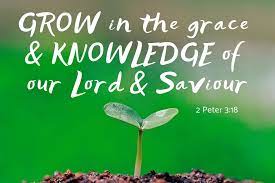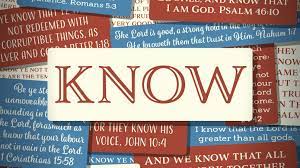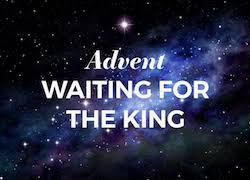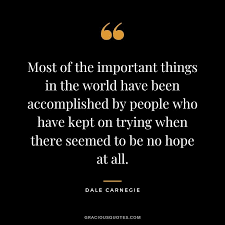Keep on growing.
Why should we care about knowing God? As we stated earlier in this series, knowledge of God accomplishes three things in our life as believers: (1) it establishes the moral authority and inspiration in our life, (2) it results in purposeful living, and (3) it enlightens us as to what God has given to us.
More importantly, knowledge of God puts us in position to experience the fullness of God in our lives (Eph. 3:19). It is found in experiencing a loving and secure relationship that is not dependent on our acceptability but is based on God’s grace and mercy.
This relationship will prepare us for whatever comes our way. With this knowledge, we will be able to not only persevere during difficult times, but also do it with joy, peace, and hope (Rom. 15:13).
What impacts our ability to grow?
There are many factors that impact our desire to grow in the knowledge of God, but I will share what I’ve heard as reasons.
Some individuals simply do not desire to learn about and experience God. They have chosen other means to address their “spiritual curiosity”. Their faith walk is more of a spiritual expedition than a personal connection.
Others feel that to learn more will require too much in the way of commitment. Growing in knowledge takes time and effort. While they acknowledge regular devotional practices like prayer, scripture study, and reflection cultivate a deeper understanding of God, they feel their time is better spent elsewhere. Their faith walk will often lack the vitality they desire because it requires a personal commitment.
What does growth feel like?
While pursuing the knowledge of God may involve connection and commitment, the driving force behind it is relationship. If we want to know…be familiar with…understand how someone is, we spend time with them. How do we spend our time with God? How much time do we spend with Him? Is it a quick “snatch-a-verse”, punctuated with an even quicker prayer? God said, “Draw near to me and I will draw near to you.” (James 4:8)
The writers of Psalms provide wonderful models for what relationship feels like. In Psalms 91:1, the writer declares that the person who “dwells in the secret place of the Most HIGH will abide under the shadow of the Almighty.” Abide means to lodge, stop over, pass the night, or remain.
King David exclaimed in Psalms 27:4, that of all that he possessed, one thing he desired and would seek after (seek after) and that was to dwell in the house of the Lord all the days of his life to behold the beauty of the LORD (NLT, delighting in the LORD’s perfections and meditating in His Temple). To dwell imagines one who remains or “sits down in quiet”.
Last, but not least, is my favorite verse, Psalms 42:1-2. “As the deer longs for streams of water, so I long for you, O God. I thirst for God, the Living God.” Long is translated in the King James Version as pants, meaning to long for or to cry.
Do we desire to abide and dwell with God? Do we pant for God? These are just a taste of what knowledge of God offers.
How do we grow?
We grow by reading and meditating on His Word. It is God’s Word that transforms our hearts and minds. As we read God’s Word, which is alive and active (Heb. 4:12), our minds are renewed (Rom. 12:2). This renewal causes us to be receptive and obedient to the things of God. What God began at the moment of our salvation, God WILL PRODUCE in us (Phil. 1:6).
We grow through cultivating an active and robust prayer life. Active and robust infers intentionality and priority. Time should not be an issue when we pray. It is prayer that will shift both our circumstances and shift us! Our will, our perspective, and our desires (Ezek. 36:27).
The key to remember in embracing the different spiritual disciplines is to remember that the intent of the disciplines is to draw us closer to God. That we may know Him (Phil. 3:7-10)! We practice spiritual disciplines not out of legalism but out of gratitude for the grace that has saved us. They are “habits of devotion” and a means of intimacy.
It is God’s will that we may know Him—up close and personal. Because of Jesus, we now have an incredible opportunity to experience His presence, and His extraordinary love. Who would turn that opportunity down? Not me!










